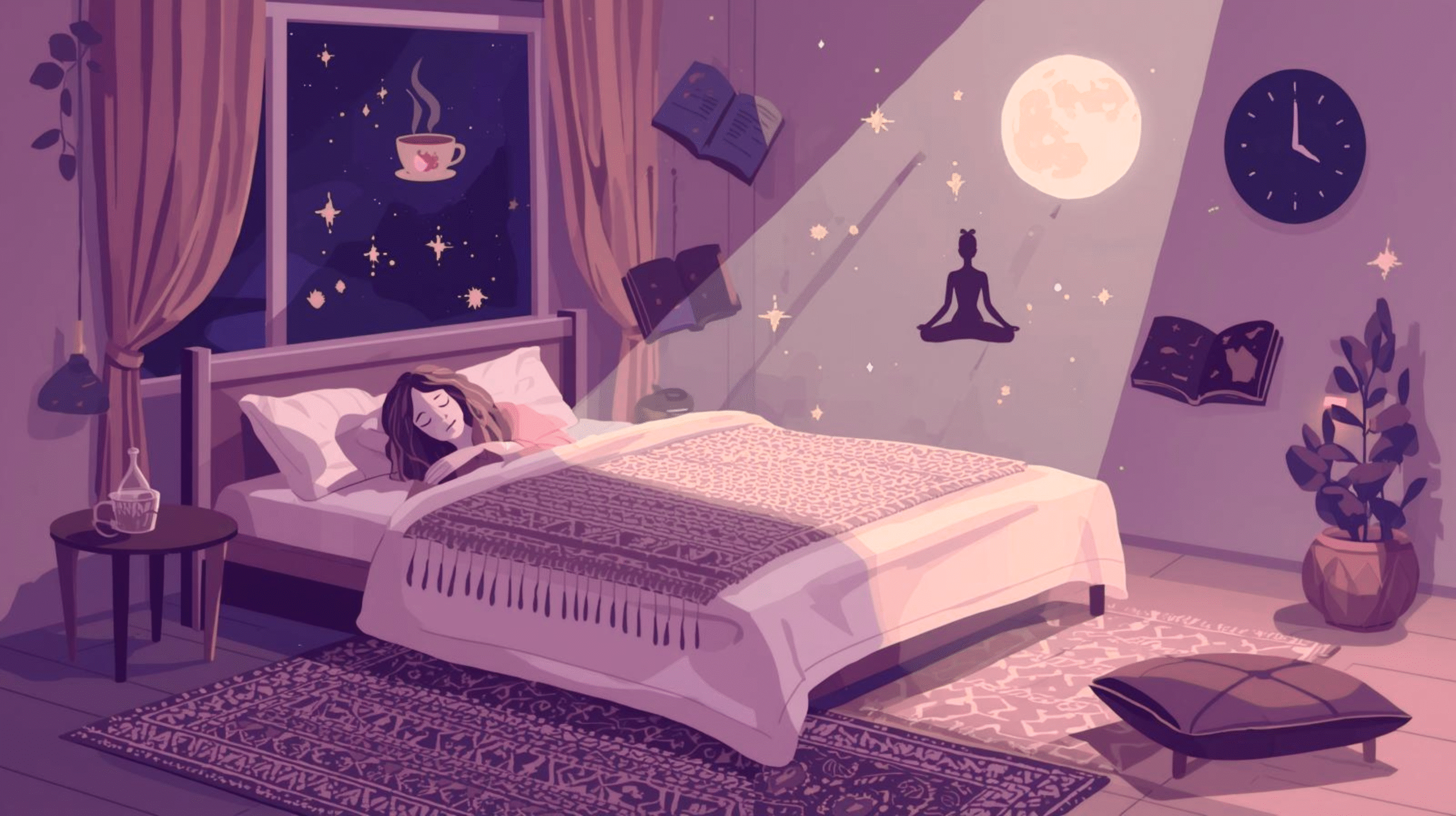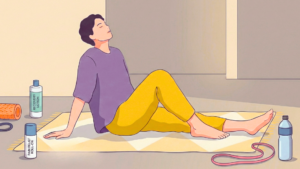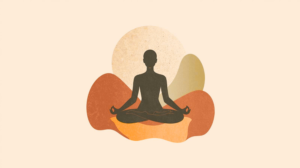Quality sleep is one of the most fundamental pillars of health, yet it is often overlooked in today’s fast-paced world. Adequate rest is essential not only for physical recovery but also for cognitive function, emotional balance, and overall productivity. Research consistently shows that sleep plays a vital role in regulating hormones, repairing tissues, consolidating memories, and maintaining a healthy immune system. When sleep is disrupted or insufficient, the consequences can ripple through nearly every aspect of life.
Poor sleep has been linked to a wide range of health concerns, including weight gain, obesity, and metabolic disorders, as inadequate rest can disrupt hunger-regulating hormones and encourage overeating. Cardiovascular health also suffers, with chronic sleep deprivation increasing the risk of hypertension, heart disease, and stroke. Beyond physical health, lack of quality sleep can lead to weakened immunity, making the body more susceptible to infections. Mental health is equally affected, as sleep disturbances are strongly associated with higher levels of stress, anxiety, depression, and difficulty managing emotions. Cognitive abilities such as focus, decision-making, creativity, and memory retention are also impaired, making it harder to perform well at work, school, or daily activities.
Despite understanding the importance of sleep, many people struggle with falling asleep, staying asleep through the night, or waking up refreshed. Stress, irregular routines, excessive screen time, and lifestyle choices often interfere with the body’s natural rhythms, leaving individuals trapped in cycles of fatigue. This highlights the need for practical, science-backed strategies that can help reset the body’s internal clock and promote deeper, restorative rest.
Fortunately, a growing body of research offers natural and sustainable ways to improve sleep quality without relying heavily on medication. From aligning daily habits with your circadian rhythm to creating an optimal sleep environment, small yet consistent changes can make a profound difference. This article explores evidence-based tips and holistic practices ranging from nutrition and light exposure to relaxation techniques that can support better sleep, enhance overall well-being, and foster long-term health.
Understanding Sleep and Its Stages
Sleep is not a uniform state but a dynamic process comprising multiple stages:
- Non-REM Sleep
- Stage 1: Light sleep, transition from wakefulness to sleep.
- Stage 2: Deeper sleep with decreased heart rate and body temperature; memory consolidation begins.
- Stage 3 (Slow-Wave Sleep): The deepest stage of non-REM sleep, critical for physical restoration, growth hormone release, and tissue repair.
- REM Sleep (Rapid Eye Movement)
- Characterized by vivid dreams and increased brain activity.
- Essential for emotional regulation, learning, and memory processing.
Disrupted sleep cycles, caused by stress, irregular schedules, or environmental factors, can impair both physical and mental recovery. A regular sleep pattern ensures adequate progression through these stages, supporting muscle repair, cognitive function, and hormonal balance.
Lifestyle Habits That Improve Sleep
Diet and Nutrition
Nutrition plays a significant role in regulating sleep:
- Avoid caffeine and alcohol close to bedtime: Caffeine is a stimulant that blocks adenosine receptors, delaying sleep onset. Alcohol may induce drowsiness but disrupts REM sleep and can lead to nighttime awakenings.
- Consume sleep-promoting foods: Foods rich in tryptophan (turkey, dairy), magnesium (leafy greens, nuts), and melatonin (cherries, oats) can enhance sleep quality.
- Balanced meals and timing: Heavy meals right before bed can cause discomfort or acid reflux, impairing sleep.
Physical Activity
Regular exercise enhances sleep quality by reducing sleep onset latency and increasing slow-wave sleep.
- Aerobic exercises such as walking, jogging, or cycling have been shown to improve sleep efficiency.
- Strength training also contributes to better sleep patterns.
- Timing matters: Morning or early afternoon workouts are optimal, as late-night high-intensity workouts may elevate cortisol and body temperature, delaying sleep onset.
Light Exposure and Circadian Rhythm
The circadian rhythm, our internal body clock, regulates sleep-wake cycles:
- Morning sunlight exposure helps synchronize the circadian rhythm, boosting alertness during the day and improving melatonin secretion at night.
- Evening light management: Minimize blue light exposure from phones, computers, and TVs 1–2 hours before bedtime, as blue light suppresses melatonin production.
- Light cues can reset your biological clock, especially for shift workers or frequent travelers.
Sleep Hygiene Practices
Bedtime Routine
Creating a consistent pre-sleep routine signals the body that it’s time to wind down:
- Go to bed and wake up at the same time every day, even on weekends.
- Engage in relaxing activities like reading, meditation, or a warm bath 30–60 minutes before bed.
- Avoid stimulating activities, arguments, or work right before sleep.
Bedroom Environment
A conducive sleep environment enhances restorative sleep:
- Temperature: Keep the room slightly cool (18–22°C).
- Darkness: Use blackout curtains or eye masks to block light.
- Noise control: Reduce ambient noise with earplugs or white noise machines.
- Comfort: Invest in a supportive mattress and pillows to minimize discomfort and maintain proper spinal alignment.
Electronic Device Management
- Limit screen time before bed to prevent melatonin suppression.
- Use night mode or blue-light filters if devices are necessary.
- Keep devices away from the bed to reduce mental stimulation.
Stress Management and Mindfulness Techniques
Stress is a major contributor to poor sleep. Techniques to manage stress can improve sleep latency and quality:
- Deep breathing and progressive muscle relaxation: Activate the parasympathetic nervous system to promote calmness.
- Meditation and mindfulness: Daily mindfulness practice has been shown to reduce insomnia severity and improve sleep efficiency.
- Journaling or cognitive strategies: Writing down worries before bed can offload mental stress and reduce bedtime anxiety.
Supplements and Natural Aids for Sleep
Some supplements can support sleep when combined with proper sleep hygiene:
- Melatonin: Helps regulate the sleep-wake cycle, particularly useful for shift workers or jet lag.
- Magnesium: Promotes muscle relaxation and reduces cortisol.
- Herbal teas: Chamomile, valerian root, and lavender have mild sedative effects.
Precautions: Always consult a healthcare provider before starting supplements, especially if taking other medications.
Avoiding Common Sleep Disruptors
- Late-night meals and stimulants: Avoid caffeine and nicotine 4–6 hours before bedtime.
- Irregular schedules and shift work: Try to maintain consistent sleep-wake times.
- Chronic pain or medical conditions: Manage underlying issues to improve sleep quality.
Tracking and Improving Sleep
Monitoring sleep patterns helps identify areas for improvement:
- Sleep diaries: Note bedtimes, wake times, naps, and sleep quality.
- Sleep-tracking devices or apps: Track sleep duration and stages to detect patterns or disruptions.
- Adjust lifestyle accordingly: Identify triggers such as late caffeine, stress, or screen use, and modify habits.
When to Seek Professional Help?
Seek guidance if sleep problems persist despite lifestyle modifications:
- Insomnia: Difficulty falling or staying asleep for more than 3 nights per week for several weeks.
- Sleep apnea: Loud snoring, pauses in breathing, or excessive daytime sleepiness.
- Restless leg syndrome: Urge to move legs interfering with sleep.
A sleep specialist can provide diagnostic testing and evidence-based interventions, such as cognitive-behavioral therapy for insomnia (CBT-I) or medical treatment.
Final Thoughts
Improving sleep is not about relying on a single quick fix but rather adopting a holistic, science-based approach that addresses multiple aspects of daily life. Quality rest emerges from the careful balance of consistent sleep hygiene, effective stress management, regular physical activity, and mindful nutrition. In addition, paying attention to light exposure both natural sunlight during the day and minimizing artificial blue light at night helps regulate the body’s circadian rhythm and signals the brain when it is time to rest. For those who continue to face challenges, evidence-based supplements and relaxation practices can serve as gentle aids in supporting better sleep.
When practiced consistently, these strategies can transform sleep from a nightly struggle into a restorative experience that replenishes both body and mind. Ultimately, prioritizing sleep not only enhances nightly rest but also strengthens overall health, sharpens cognitive performance, and fosters greater emotional well-being in the long run.
Looking for more tips? Don’t miss these related guides.
- https://betterhood.in/learn/role-of-pillow-materials-in-allergies-and-sleep-comfort/
- https://betterhood.in/learn/the-posture-tax-how-every-hour-of-stillness-steals-a-year-of-movement/
Frequently Asked Questions
1. How can I fall asleep faster naturally?
Practice a consistent bedtime routine, reduce blue light exposure, and use deep breathing or meditation to relax before sleep.
2. What foods help improve sleep quality?
Tryptophan-rich foods (turkey, dairy), magnesium sources (leafy greens, nuts), and melatonin-rich foods (cherries, oats) can promote better sleep.
3. Does exercise improve sleep, and when is best to exercise?
Yes, regular exercise enhances sleep quality. Morning or afternoon workouts are best; avoid intense late-night exercise.
4. How does stress affect sleep, and how can I manage it?
Stress elevates cortisol and delays sleep onset. Mindfulness, meditation, deep breathing, and journaling reduce stress and improve sleep.
5. Are sleep supplements safe and effective?
Supplements like melatonin, magnesium, and herbal teas can help, but consult a healthcare provider before use, especially if taking medications or having health conditions.
References:
- Hirshkowitz, M., et al. (2015). National Sleep Foundation’s sleep time duration recommendations: Methodology and results summary. Sleep Health, 1(1), 40–43. https://doi.org/10.1016/j.jsm.2015.10.001
- Buysse, D. J. (2014). Sleep health: Can we define it? Does it matter? Sleep, 37(1), 9–17. https://doi.org/10.5665/sleep.3298
- Kosteniuk, J., & Molnar, F. (2020). Sleep hygiene practices and their impact on insomnia in adults: A systematic review. Journal of Clinical Sleep Medicine, 16(3), 349–363. https://doi.org/10.5664/jcsm.8310
- Medic, G., Wille, M., & Hemels, M. (2017). Short- and long-term health consequences of sleep disruption. Nature and Science of Sleep, 9, 151–161. https://doi.org/10.2147/NSS.S134864
- Cappuccio, F. P., et al. (2010). Sleep duration and all-cause mortality: A systematic review and meta-analysis of prospective studies. Sleep, 33(5), 585–592. https://doi.org/10.1093/sleep/33.5.585























